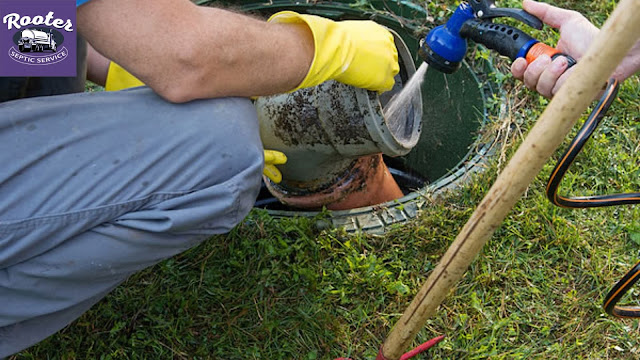How Regular Maintenance Protects Your Plumbing Investment
Regular maintenance is the key to protecting the long-term investment made in plumbing systems, especially for properties using septic solutions. By scheduling inspections, cleanings, and timely repairs, homeowners and property managers ensure their plumbing infrastructure remains efficient, healthy, and free from costly emergencies. This article explores how maintenance routines such as septic pumping in Fayetteville safeguard plumbing systems and deliver significant financial and environmental advantages.
The Real Value of Regular Plumbing Maintenance
Plumbing systems are crucial for healthy, comfortable living environments and well-functioning businesses. Their silent operation is often taken for granted—until problems arise. Drains clog, lines back up, or septic tanks overflow. These failures frequently stem from neglected maintenance. Routine attention prevents such disruptions, ensuring continuity and reliability.
Preventing Costly Repairs and Emergencies
The most persuasive reason for regular maintenance is to avoid expensive emergency repairs. Unchecked plumbing issues can result in water damage, hazardous mold growth, and irreversible damage to pipes and septic tanks. Septic system failures are especially problematic, leading to backups, foul odors, and contamination. With consistent checkups and cleaning, especially septic pumping in Fayetteville, issues are caught early and fixed before they become emergencies, saving time, money, and property value.
Extending the Life of Plumbing Systems
Plumbing infrastructure represents a major capital expense in both residential and commercial properties. Like any system, its lifespan depends on how well it’s cared for. Scheduled inspections and preventive measures, such as flushing pipes and cleaning septic tanks, slow wear and tear. Keeping everything in prime condition maximizes the return on plumbing investments; components last longer, meaning replacements and major repairs are needed less frequently.
Maintaining Health and Safety
A healthy plumbing system protects families and building occupants by preventing exposure to contaminated water, sewage gases, and allergens. Overflows and leaks can transmit harmful bacteria and viruses, compromising water sources and air quality. Regular maintenance measures—ranging from drain cleaning to tank pumping and water testing—help remove these hazards and ensure that household wastewater is properly treated.
Protecting Property Value
A properly maintained plumbing system preserves and even increases property value. Buyers and renters are drawn to properties with trouble-free drains, clear water supply, and odor-free bathrooms. In contrast, faulty plumbing, recurring problems, or visible leaks reduce market value and deter interested parties. Regular service records and maintenance certificates can become attractive selling points.
Environmental Stewardship
Plumbing systems directly impact environmental health. A well-functioning septic tank processes waste efficiently, preventing the release of contaminants into soil, groundwater, and nearby bodies of water. Maintenance practices such as checking for leaks, managing water usage, and routine septic pumping in Fayetteville protect local ecosystems, aquatic life, and drinking water supplies.
Early Detection and Prevention
Routine maintenance is more than cleaning—it’s a powerful strategy for early detection. Inspections reveal hidden cracks, small leaks, or minor blockages before they spiral into bigger problems. Plumbers check pressure levels, tank fill rates, and water quality indicators, advising homeowners on steps to stay ahead. Catching issues early is far less expensive than fixing them after the damage is done.
Money-Saving Benefits
Procrastinating on plumbing maintenance might save a little now, but it leads to much higher costs later. Emergency repairs, system replacements, and water damage restoration can cost thousands of dollars. Regular upkeep, including pumping, filter cleaning, and pipe clearing, is a modest expense by comparison.
Routine plumbing care is an investment that pays off in peace of mind. Sinks drain quickly, toilets flush reliably, and water flows cleanly. Homeowners can rest easy knowing they won’t wake up to flooded basements or foul odors from neglected pipes.
How to Build an Effective Maintenance Schedule
Annual Inspections: Hire a licensed plumber to assess all plumbing elements at least once a year.
Septic System Cleaning: Schedule septic tank pumping and inspection every 3-5 years, as recommended for local conditions.
Water Quality Testing: Test water regularly for contaminants such as bacteria, nitrates, or heavy metals.
Drain Cleaning: Remove buildup in kitchen, bath, and utility drains before it causes clogs.
Leak Checks: Examine exposed pipes, joints, and shut-off valves for moisture, rust, or corrosion.
Upkeep Logs: Keep records of all service visits, repairs, and replacements for future reference.
Special Attention for Septic Systems
Homes and businesses outside municipal sewer lines rely on septic systems for wastewater management. These systems need dedicated care: pumping, filter cleaning, and monitoring for blockages or cracks. In Fayetteville, standing water or foul smells can signal urgent need for septic pumping, a process that removes built-up solids and restores healthy function.
Peace of Mind for Owners
Ultimately, regular maintenance grants peace of mind. It minimizes the chances of sudden failures and costly emergencies, supports public health, and protects the environment. Regular plumbing and septic care create confidence in everyday living and support the long-term value of every property.
Consistent maintenance, including septic pumping in Fayetteville, remains one of the most effective ways to protect the plumbing investment in any home or business. With proper care, systems last longer, work better, and avoid the downsides of neglect—making maintenance an essential part of responsible property ownership.




Comments
Post a Comment